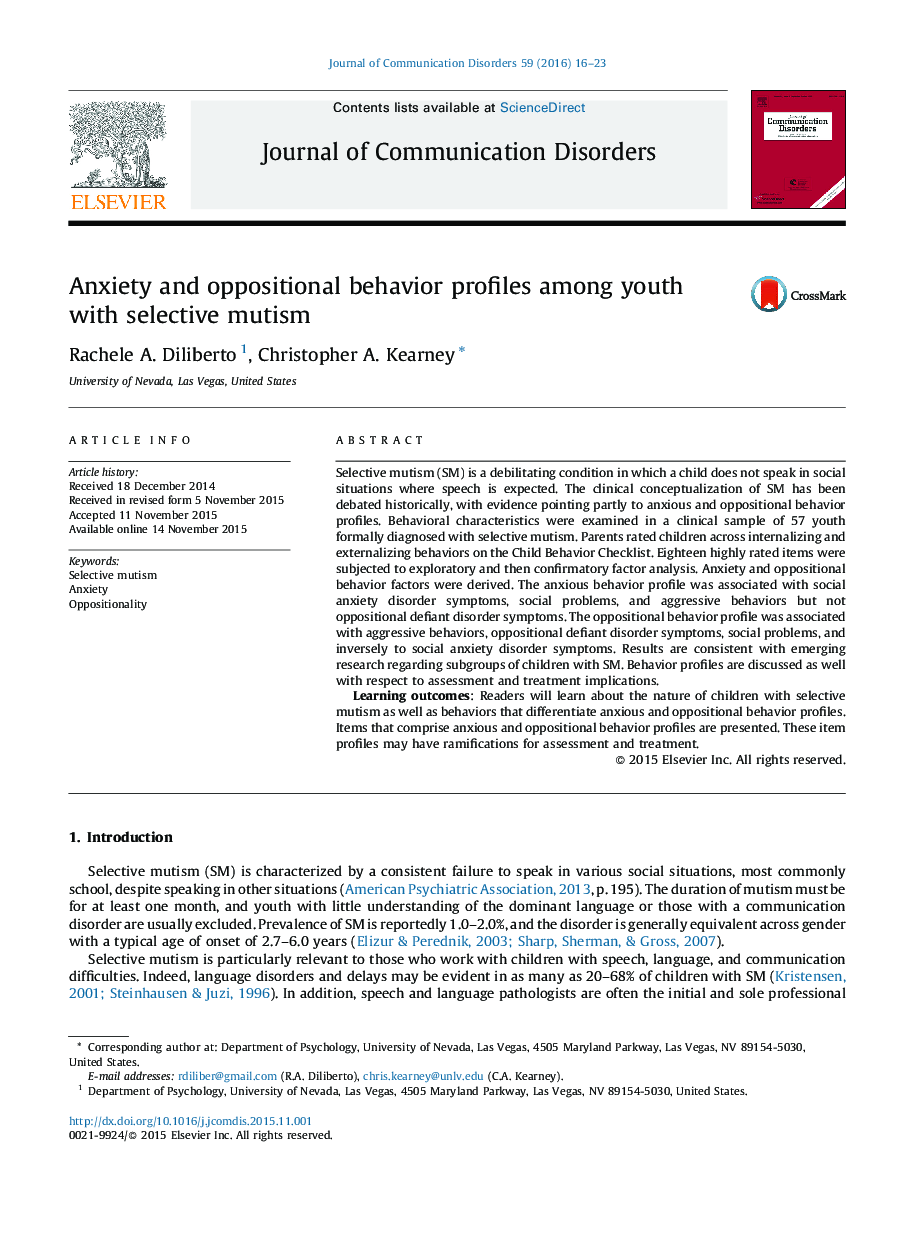| Article ID | Journal | Published Year | Pages | File Type |
|---|---|---|---|---|
| 910741 | Journal of Communication Disorders | 2016 | 8 Pages |
•Anxiety and oppositional behavior factors were derived.•Anxious behavior profile was associated with social anxiety.•Oppositional behavior profile was associated with defiant symptoms.•Results support the idea of subgroups of children with SM.
Selective mutism (SM) is a debilitating condition in which a child does not speak in social situations where speech is expected. The clinical conceptualization of SM has been debated historically, with evidence pointing partly to anxious and oppositional behavior profiles. Behavioral characteristics were examined in a clinical sample of 57 youth formally diagnosed with selective mutism. Parents rated children across internalizing and externalizing behaviors on the Child Behavior Checklist. Eighteen highly rated items were subjected to exploratory and then confirmatory factor analysis. Anxiety and oppositional behavior factors were derived. The anxious behavior profile was associated with social anxiety disorder symptoms, social problems, and aggressive behaviors but not oppositional defiant disorder symptoms. The oppositional behavior profile was associated with aggressive behaviors, oppositional defiant disorder symptoms, social problems, and inversely to social anxiety disorder symptoms. Results are consistent with emerging research regarding subgroups of children with SM. Behavior profiles are discussed as well with respect to assessment and treatment implications.Learning outcomes: Readers will learn about the nature of children with selective mutism as well as behaviors that differentiate anxious and oppositional behavior profiles. Items that comprise anxious and oppositional behavior profiles are presented. These item profiles may have ramifications for assessment and treatment.
